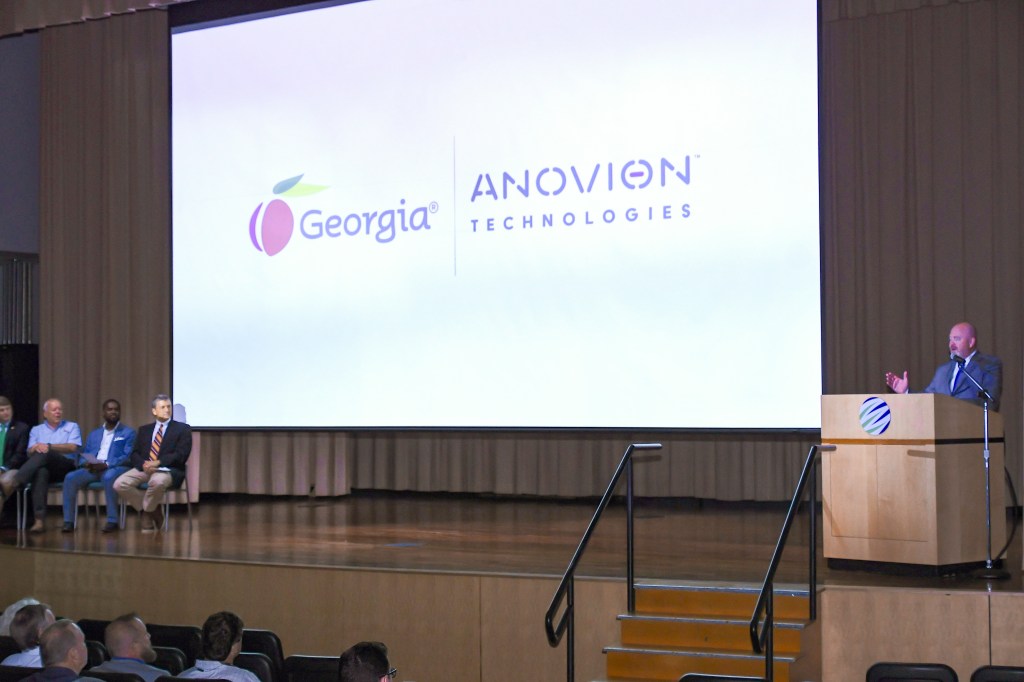Anovion still aiming for 2026 construction
Published 3:04 pm Wednesday, July 16, 2025
|
Getting your Trinity Audio player ready...
|
It has been just over two years since Anovion Technologies officially broke ground for its new Bainbridge facility. Since then, there has been little visible construction at the industrial park site, though developments have remained ongoing in the background. The Post-Searchlight reached out to Patrick Donnelly, Anovion’s Chief Commercial Officer, to provide an update on the progress of the Bainbridge facility.
During the December 2024 Bainbridge city council meeting, Anovion Chairman Chip Dunn informed the council that Anovion planned to begin construction on a “mini-mill” by mid-2025, to be completed by 2026. Full production for the facility was scheduled at 2028. Donnelly stated that the company “is still targeting 2026 to kick off the ‘mini-mill’ as well as production in 2028 for the full facility.” The exact start and completion dates, he stated, however, were “dependent on several variables”, and could not provide precise dates.
In November of last year, Anovion was also announced as being in talks with the Export-Import Bank of the United States for $400 million in project financing. Donnelly stated that they are still working with the Ex-Im Bank to meet the criteria to secure the financing. The process, Donnelly said, is dependent on factors, some of which are not completely under Anovion’s control. “Anovion remains confident that this financing source will be part of the final package to build out the Bainbridge facility,” he said.
Trending
As Anovion’s main product is synthetic graphite, a key component in electric vehicles, federal policy decisions and bills have also had an impact on the company. The most recent influencing factors include the One Big Beautiful Bill Act, as well as tariffs. Donnelly stated that Anovion is still assessing the impacts of the OBBBA, with some positives and negatives for battery cell producers. One positive he pointed out was restrictions placed on the use of foreign entity of concern (FEOC) material assistance. A negative result is the loss of EV tax credits that had been a part of the Biden administration’s Inflation Reduction Act.
“As 95%+ of synthetic graphite used for battery cells currently comes from China, there should be tailwinds for Anovion’s value proposition to domestic cell makers coming out of the OBBBA,” Donnelly said, “but the ongoing uncertainty around tariffs and trade policy also plays a significant role in timing of the project and contracts.”
“Anovion wants to get into business at scale in Bainbridge as fast as we prudently can to address both the national security needs of the US and build out a critical part of the battery supply chain of the energy transition throughout North America,” Donnelly concluded.







